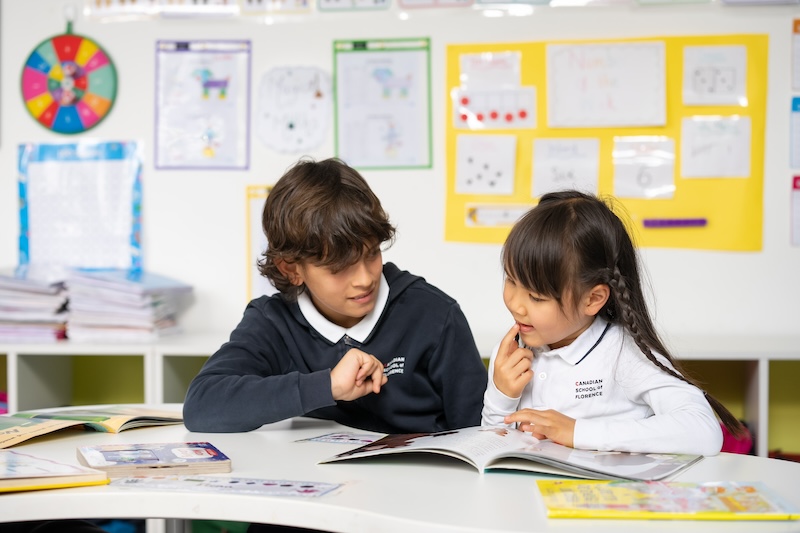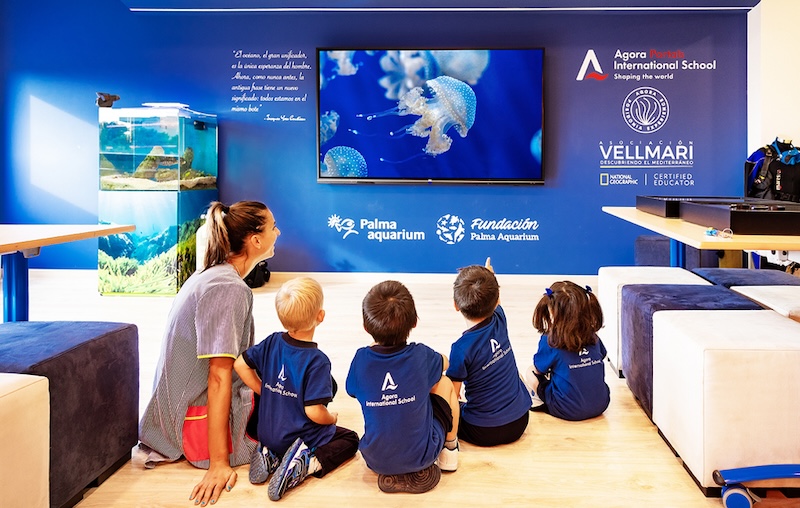Welcome to a thriving sector of education, focused on the future
Posted on 11th Mar 2024 in School News, International Education, International Schools
Daniel Jones, Chief Education Officer of Globeducate schools group, on what lies ahead for international education.
The international school sector continues to thrive, attracting a growing number of students and gaining recognition worldwide. Against a backdrop of political and financial instability, and increased pressure on family finances, globally, this overview explores the reasons behind our sector´s continued success, the factors contributing to its growth, the benefits it offers, and the challenges it faces.
International schools remain popular for parents who want their children to benefit from an international education and develop as global citizens – there is simply nothing that can replicate the dynamic, welcoming, and vibrant atmosphere of an international school and the community that comes with it for the wider family – for today and for the long term. Transient, yes, in some parts of the world such as the Middle East and Far East, but in a positive way - these friendships made in international schools, and relationships with teachers, often last a lifetime due to the unique culture and close-knit community.
Imagine being immersed in an environment bursting with life, with children your own age, younger and older, who represent up to anything like 40 or 50 different nationalities and who may speak up to 20 different languages. This is what makes children at international schools love going to school and what gives them an international network for the rest of their lives. They become authentic global citizens; they become agile learners, experts at making new friends and skilled at adapting to new social groups.
Portugal is an up-and-coming popular destination not only for European expat families but, increasingly, from North and South America. Head of School at Nobel Algarve British International School in the south of Portugal, Paul Brewster says, “Being educated in an international environment makes students very accepting of difference and value diversity. They are confident and comfortable with those with different ideas and attitudes from their own. They build a network of exceptional young people from across the world and those friendships often last a lifetime.”

This inbuilt network for the future is an attractive prospect to parents, as is the value of cultural richness. Chris Long, Head of School at O Castro British International School in Galicia, Spain, explains that a display of flags can be a simple idea that students and families find very settling. He explains, “Our use of flags in the front of our school highlights what an international school is about and promotes, highlighting the cultural richness we have and breaking down perceptions of different countries through representation of our own community.”
Parents are only too aware of the choices and sacrifices they need to make with their children´s futures in mind. Increasingly, they are also aware of how the world they have experienced, academically, professionally, and socially, may not reflect the future higher education routes, and job markets their children enter.
Luis Madrid, Executive Director of both Agora Madrid and Agora Lledó International Schools, Spain, explains, “First, many parents and students seek an education that offers a global perspective and an enriching international experience. International schools often offer a bilingual or multilingual education and a focus on critical thinking, creativity and problem solving. In addition, international schools often have exchange and collaboration programmes with other schools around the world, allowing students to develop an international network and a deeper understanding of other cultures and ways of life. The demand for international education has also been increasing in recent years due to globalisation and the need for students to develop skills that will enable them to compete in an increasingly globalised labour market. In conclusion, the private international school sector continues to thrive and grow due to the need for global education and the demand for international skills and experiences from parents and students."
Key motivating factors
Reasons for choosing the international schools’ route for children often include families being mobile for either work or lifestyle reasons, high-quality education, multicultural environments, language acquisition, and parental aspiration for their children to be true global citizens. Many international schools provide a bilingual or multilingual education, allowing students to become proficient in multiple languages. Schools offering the International Baccalaureate (IB) can deliver this as a bilingual programme and in 2022, more than half of IB students in leading international schools group Globeducate achieved a bilingual IB.
Multilingual learning and celebrating culture diversity is a key feature that brings to life the Globeducate commitment to connecting young minds and spirits for a global perspective. Isabelle Leblanc is Head of School at Canadian School of Florence, Italy. The school has three campuses and covers the whole K-12 age range. The school teaches in three different languages and the school population speaks more than 15 different languages and dialects. She said, “This year our Kindergarten children travelled around the world without ever leaving their classroom as parents from all different countries came in to talk about their nationality. The students were so proud to be recognised and represented in their whole class learning. Many of our students in the Junior School enjoyed celebrating Chinese New Year for the first time this year, and we are always proud to celebrate the diversity of our student body.”

Activities similar to those proving so popular at Canadian School of Florence are not unusual in Globeducate´s 55+ schools across the world, in ten countries. Through global events such as Academic Olympics, Model United Nations and an International Music Festival, students come together, make new friends and feel inspired to make a valuable contribution to the world. Connecting through projects and partnerships is another way in which international schools can leverage their collective strength and students in Globeducate schools benefit from partnerships with respected organisations such as WWF, Eco-Schools, LEGO® Education and Arts International.
These partnerships add significant value to the internationally recognised curricula that the leading international schools are renowned for delivering and give students rich experiences to set them up for their futures in what is an increasingly interconnected world where they will need the skills of critical thinking, cultural understanding and other key values and skills which form part of a world-class international school education. Many international schools also offer alumni programmes to ensure their students are well connected after graduation from their senior years at school.
The international school sector continues to thrive due to globalisation, the pursuit of high-quality education, and the benefits it offers in terms of multicultural exposure, language acquisition, and enhanced opportunities. As technological advances mean that more parents are able to work remotely and live abroad, the appeal of international schools becomes stronger. However, the sector also faces challenges such as costs of running campuses and the move to sustainable energy sources, increases in the cost of living for parents who make the sacrifice of choosing private education, and teacher recruitment and retention. As the world becomes increasingly interconnected, international schools play a crucial role in shaping the global citizens of tomorrow.
This article first appeared in the 2023/24 edition of John Catt's Guide to International Schools, which you can read here: